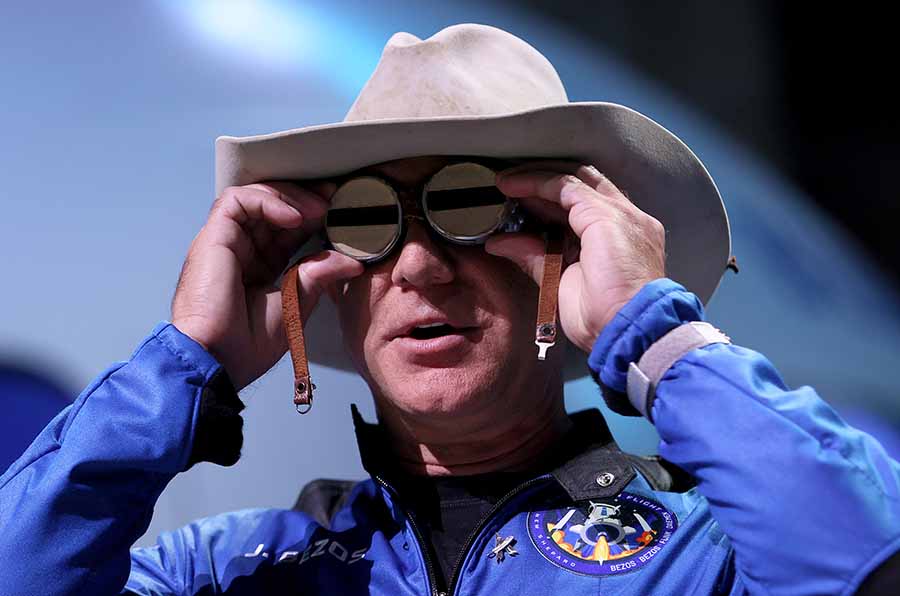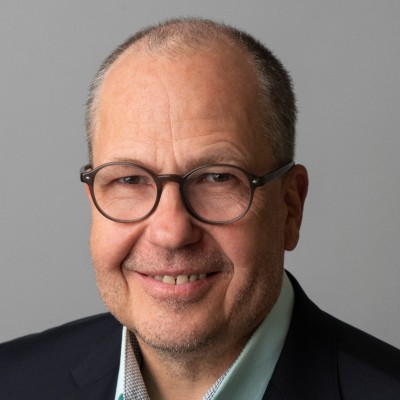Amazon founder Jeff Bezos gets more than his fair share of negative press in the court of public opinion. Whether he’s a benefit or a blight to society depends on who you listen to, however the facts lean clearly in one direction.
For Amazon to exist, one person needed to shoulder the burden. Jeff Bezos is the visionary leader who, through hard work and enormous risk, contributes immensely to the prosperity of the free world through the creation of his internet-based enterprise.
Amazon makes money for everyone, least of all Jeff Bezos. In 2020, the value of Amazon jumped by $570 billion! Jeff Bezos owns about 10 percent of the company he created, so his personal net worth increased by $57 billion. This was derided by some as too much, however it was a testament to the magnificence of the company he founded.
At the same time that his personal fortunes increased, Jeff Bezos created $513 billion (that’s half a trillion dollars!) of value for the other shareholders of Amazon. Banks, pension funds, labor unions, insurance companies and other institutional investors own the majority of Amazon. When you get a loan for a car, a pension as a teacher, strike pay from a union or home insurance after a fire, there’s very likely a little bit of Amazon wealth making each transaction possible. Amazon primarily makes money for the institutions and shareholders that own it, not for Bezos.
It’s popular to talk about the perceived value of a company when share prices rise, but little attention is given when a company fails and the value evaporates almost entirely. The founders of Yahoo, the first internet brand, saw the value of their company go from $128 billion in 2000 to $5 billion in 2021 when Apollo bought the final version of the company — a dramatic loss of 96 percent of the value. Blockbuster founder David Cook saw the market value of the company he founded peak at $5 billion in 2002 then go into bankruptcy in 2010. You can see how it’s remarkable to consistently grow a company over a span of decades as Amazon has done.
Amazon helps the little guys, too. It boosted retail sales on products to magnitudes never before seen. If you have a small business selling handcrafted jewelry or a large business selling millions in electronics, Amazon Marketplace brings customers around the world to your doorstep. In 2021 third-party sellers accounted for 60 percent of sales on Amazon. Global consumers had more choice, and consumers showed up in droves to buy. Last year 54 percent of all product searches on the internet took place inside the Amazon online store.
Amazon is a large employer with 1.6 million employees and it’s a good employer, providing jobs for everyone from MBA grads to people who never finished high school. The average starting wage is more than $18 an hour, or over $36,000 a year for a fulltime worker.
Jeff Bezos pays his taxes, too. In spite of what many believe, he paid $1.4 billion on income of $6.5 billion between 2006 and 2018. Within that time frame, he paid no taxes (in 2007 and 2011) because in those two years Bezos had no need to pay himself a salary or sell any of his Amazon shares and so had no taxable income. He was among a large percent of the U.S. population that pays no federal taxes. (In 2021, 57 percent paid no federal taxes.)
Apart from the annual cornucopia of 1.6 million jobs, with a median pay of $29,007 USD globally (totaling $46.4 billion paid in salaries), $43 billion in research and development, and billions in new shareholder value, Jeff Bezos made the largest philanthropic donation in 2020 with a $10 billion donation to launch the Bezos Earth Fund to fight the climate crisis. That is far better than most of us. More than half of all Americans donated to a charity last year and the average donation was $567.
Despite all of these accomplishments and stunning figures, U.S. Labor Secretary Robert Reich labels Bezos a Scrooge capitalist. Reich emphasizes that the working people of America outnumber corporate executives by a wide margin. He puts this idea forward as if the leadership, appetite for risk, insane work hours and innovation are on par between the two groups. Amazon employs 1.6 million people, however only Bezos had the drive, foresight and ability to create something that didn’t exist before.
Building Amazon wasn’t easy. Naysayers were abundant. Bezos originally selling books online in 1995, then started selling electronics in 1999. In 2000 he allowed third-party vendors to sell goods online via Amazon Marketplace. Each time the company moved further into its future identity, few people cheered it on. It took a lot of grit for Bezos to keep moving forward. In May 1999, Barron’s ran the story AMAZON.BOMB, calling the concept of online sales “silly.”
Bezos is a unicorn capitalist, similar to unicorn capitalists Henry Ford, Bill Gates, Thomas Edison and Elon Musk. He boosts the world’s prosperity. We don’t need fewer people like Bezos, we need more.




































